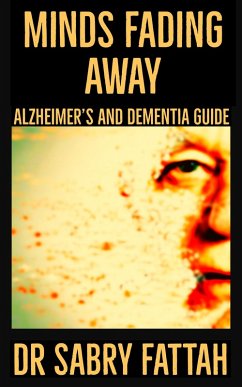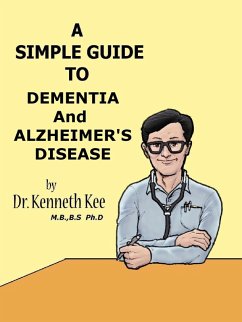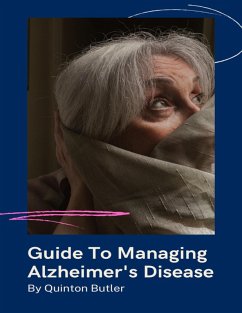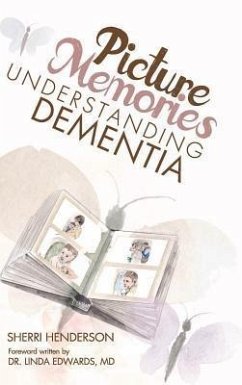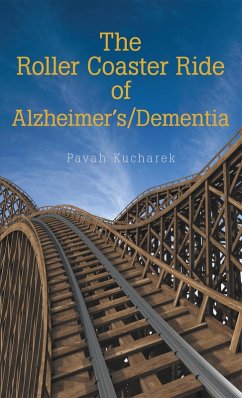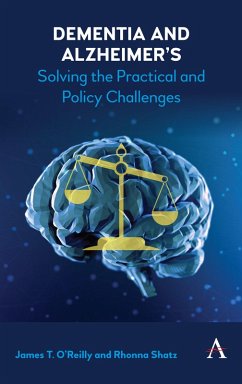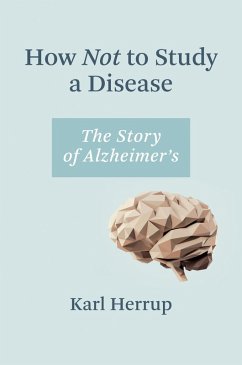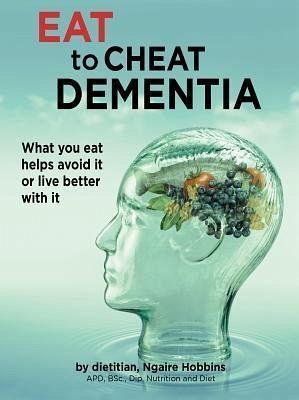
Eat To Cheat Dementia (eBook, ePUB)
What you eat helps you avoid it or live well with it.

PAYBACK Punkte
3 °P sammeln!
As we live longer it's essential we understand how best to maintain both body and brain so they can help us achieve all we wish for in life. This book is a companion to Ngaire's ground-breaking book "Eat To Cheat Aging" (Eat To Cheat Ageing in Australia and the UK). It addresses the complexities of neuroscience and how what we eat can help or hinder our brains in her trademark reader-friendly and engaging style.This is a book for those wishing to get a grip on the latest science on maintaining brain health, but it's also for those living with a diagnosis of dementia. Eat To Cheat Dementia prov...
As we live longer it's essential we understand how best to maintain both body and brain so they can help us achieve all we wish for in life. This book is a companion to Ngaire's ground-breaking book "Eat To Cheat Aging" (Eat To Cheat Ageing in Australia and the UK). It addresses the complexities of neuroscience and how what we eat can help or hinder our brains in her trademark reader-friendly and engaging style.
This is a book for those wishing to get a grip on the latest science on maintaining brain health, but it's also for those living with a diagnosis of dementia. Eat To Cheat Dementia provides a wealth of information, guidance and strategies for those who live with this diagnosis and those who care about them.
Nearly half of those diagnosed with dementia have already lost weight in the year prior to that and if weight loss and poor food intake is not addressed immediately quality of life and the chance of continued independence can be too easily snatched away far too quickly.
There is a lot that can be done to support your brain and reduce your chances of accumulating damage that can lead to cognitive decline. But if that has become evident, there are also plenty of ways to help slow its progress and to keep living well in the years ahead.
Whether you are in your 30s, 40s or 50s and looking ahead to your later years, currently in your 60s or beyond, wishing to make the most of life; whether you live with a dementia diagnosis or not, or care about someone who does, this book is essential reading.
This is a book for those wishing to get a grip on the latest science on maintaining brain health, but it's also for those living with a diagnosis of dementia. Eat To Cheat Dementia provides a wealth of information, guidance and strategies for those who live with this diagnosis and those who care about them.
Nearly half of those diagnosed with dementia have already lost weight in the year prior to that and if weight loss and poor food intake is not addressed immediately quality of life and the chance of continued independence can be too easily snatched away far too quickly.
There is a lot that can be done to support your brain and reduce your chances of accumulating damage that can lead to cognitive decline. But if that has become evident, there are also plenty of ways to help slow its progress and to keep living well in the years ahead.
Whether you are in your 30s, 40s or 50s and looking ahead to your later years, currently in your 60s or beyond, wishing to make the most of life; whether you live with a dementia diagnosis or not, or care about someone who does, this book is essential reading.
Dieser Download kann aus rechtlichen Gründen nur mit Rechnungsadresse in A, D ausgeliefert werden.




